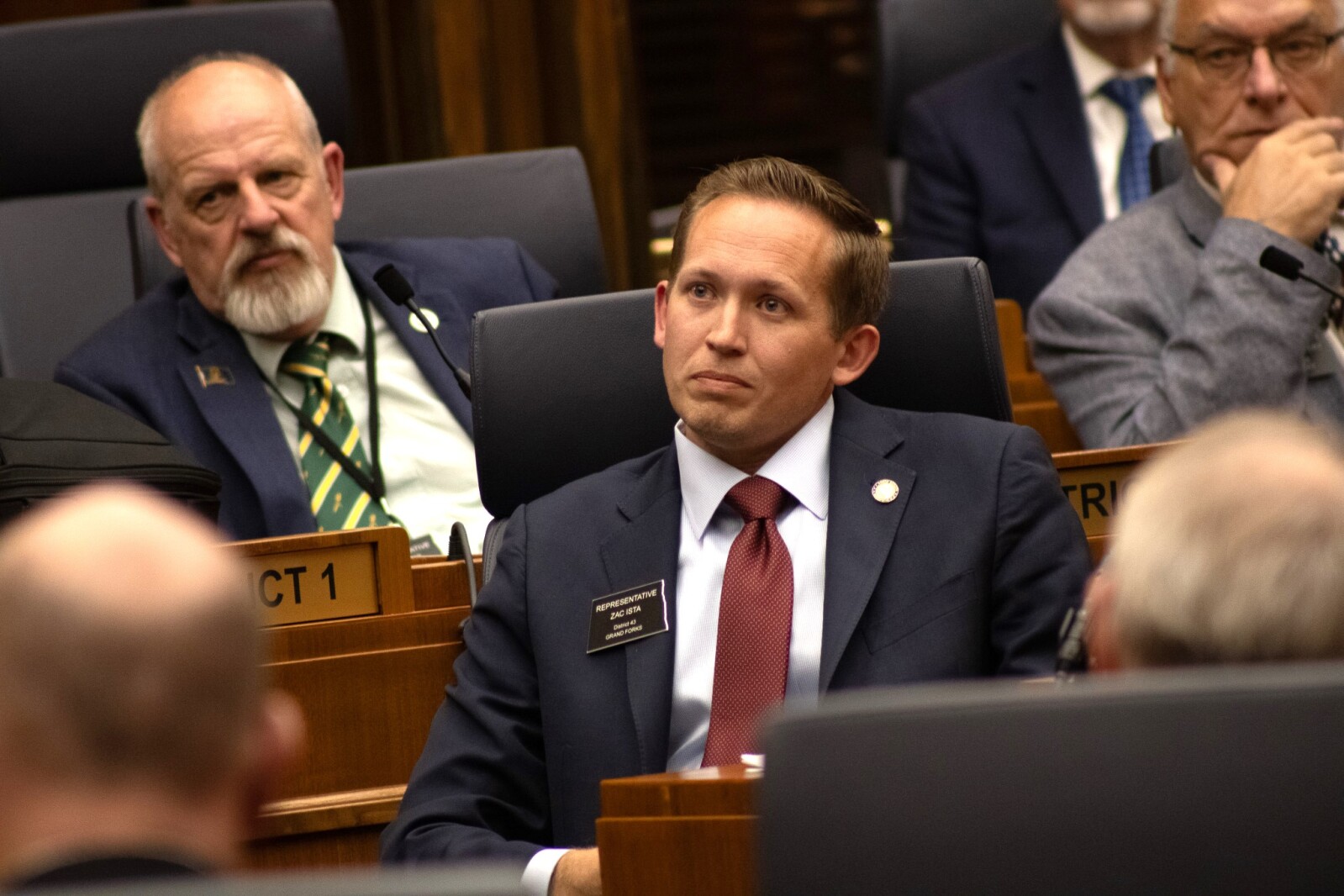EDITOR’S NOTE: The following is part of an ongoing series of Herald stories about the recently completed session of the North Dakota Legislature.
GRAND FORKS – Of the more than 1,000 bills and resolutions introduced during the recently completed session of the North Dakota Legislature, one rises above all others, according to Grand Forks lawmakers.
Property tax reform and relief – coming with the passage of House Bill 1176 – stands out as the most notable legislation of the session, they say.
Rep. Zac Ista, D-Grand Forks, believes the property tax relief effort will work to retain current residents and attract new ones.
“(HB 1176 is) real, lasting, and sustainable property tax relief and reform for North Dakota homeowners who soon will enjoy an annual $1,600 primary residence tax credit. This will both help homeowners stay in their homes and attract new workers to our state,” Ista said. “I was proud to stand with Governor (Kelly) Armstrong in prioritizing homeowners and making sure this relief can extend well into the future in a way that doesn’t bust the state budget.”
Seven of 12 Grand Forks lawmakers responded to a post-session survey sent by the Grand Forks Herald, with each giving property tax-related answers when asked “what do you feel was the most impactful legislation that was passed for the state during this session?”
Responding to the survey were Republicans Sen. Scott Meyer, Sen. Claire Cory, Sen. Jonathan Sickler, Rep. Eric Murphy, Rep. Steve Vetter and Rep. Mark Sanford and Ista. Not responding to the emailed surveys were Rep. Emily O’Brien, Rep. Nels Christianson, Rep. Landon Bahl, Rep. Doug Osowski and Sen. Jeff Barta.
Passage of HB 1176 came late in the session, on May 2. The nearly $409 million bill expands the primary residence tax credit to a maximum of $1,600 – more than tripling the previous credit of $500 – and limits to 3% the increase that local subdivisions can levy annually. Funding for the bill will come from the state’s Legacy Fund, which derives its revenue from oil and gas extraction taxes.
Tax relief was among Gov. Armstrong’s chief goals coming into the session, saying before the November election that property taxes are the state’s “No. 1 issue.” In a post-session op-ed published in the Grand Forks Herald and other newspapers, the first-term governor applauded HB 1176’s passage.
“Homeowners spoke. We listened,” he wrote. “Ensuring this tax relief continues to increase will be a top priority for our administration in future sessions.”
He believes the package is “responsible, affordable and durable” and that its framework will allow lawmakers an opportunity to increase the primary residence credit as the Legacy Fund grows.
Sickler said the passage of 1176 “will have an immediate impact on all North Dakota primary homeowners.”
He said the initial $1,600 credit will grow over time in correlation to the Legacy Fund’s inevitable growth, benefiting “a broad swath of North Dakotans across the state.”
Cory sees HB 1176 as “a direct tax savings for homeowners.” In her survey response, she noted the tripling of the tax credit and also that the bill “provides money for a disabled veterans tax credit and a renters refund.”
Vetter called HB 1176 impactful and said it was the No. 1 issue he heard about from constituents this session. Same for Meyer.
“Property tax reform was the most impactful legislation and the policy that I received the most emails about,” Meyer said. “I supported this policy as it focused on owner-occupied residences and renters, which more than tripled the current property tax credit. This will likely continue being a point of discussion, whether we are looking to increase the credit or expand to other property classifications.”
Murphy, too, listed HB 1176 as the most impactful for the state.
He added: “I find that property taxes are a local issue and the 3% cap on local increases may become problematic. Because the city of Grand Forks has limited increases over the years below 3%, I don’t see that to be an issue for the moment. But we just don’t understand the unintended consequences.”








